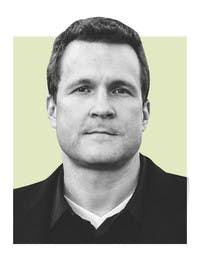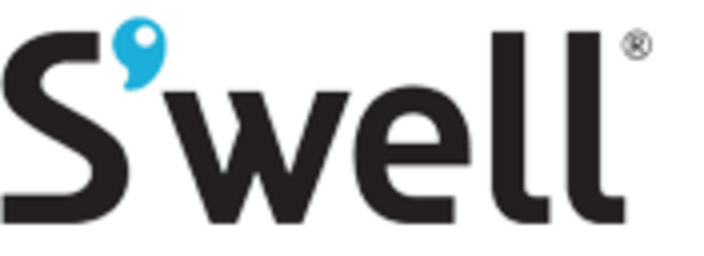Most technology companies talk the talk when it comes to user service, privacy protection, and other high-minded ideals. Few walk the walk like Mozilla, best known for its Firefox web browser but increasingly identified with progressive ideals about the open web and user security, applications, and policy. While the main corporation is a for-profit enterprise, its "people over profit" motto and methods extend to the nonprofit Mozilla Foundation, which helps coordinate thinking and strategy for the whole organization. Chief Operating Officer Denelle Dixon has been one of the most forceful internal and external voices for the company's core principles. After almost seven years with Mozilla, Dixon is moving on to become CEO and executive director of Stellar Development Fund. She spoke with Overture about her tenure at Mozilla and passionate commitment to its mission.
What drew you to join Mozilla?
I had been working in tech and private equity, and I was continually frustrated by the end-of-quarter demands placed on the businesses. Often it just undermined the trajectory the business was on. I wanted to focus on what was right for the business, product, and user. Mozilla offered that in spades. The mission—which feeds the entire culture of the organization—became a table stake for me. It is special to work at a company that is fully invested in doing the right thing by the user and by the ecosystem.
Mozilla has the support of its shareholders to do right by the user.
You've spoken many times on the importance of privacy, security, and "data hygiene" on behalf of users, while also advocating for openness and transparency for organizations and governments. How do you see that dynamic evolving?
It’s so interesting to think about the dynamic between openness, transparency, and user needs. We are moving to a time when the user needs and demands are all about trust. Trust isn’t something that you can buy—one has to prove it time and time again, and openness and transparency go a long way to ensure you can develop trust. Why do people trust? It is like the old adage in security: “Trust but verify.” It is such an important thing. I believe we are seeing a movement toward more openness so that users can verify what is happening through the code and in contexts users notice.
A movement like this will take us to next the generation of products. Transparency is going to be required.
It’s something Mozilla started 20 years ago, and it’s is becoming mainstream because people are confused by an ecosystem that is hostile to them, and they want to understand how to work in this ecosystem. Transparency will be the way to do it.
How would you articulate what makes Mozilla different as a company, both now and in the future?
Mozilla actually cares about openness, transparency, and the user. It’s part of our mission—it’s part of our DNA at Mozilla. We take great effort to model that behavior in our product and in our work with governments.
Our ability to stand up for what’s right for the web allows us to be viewed differently than most companies. We don’t just lobby for things that are going to help our products. We focus on what is required to maintain an open and sustainable internet.
We aren’t beholden to anyone but ourselves. And while this can create challenges, I also think it creates opportunities for where Mozilla can go in the world.
That’s what makes Mozilla different. I don’t ever want this to change.
What challenges concern you most in the current market?
We have really big players that own a lot of the market. So I’m concerned about innovation, competition, and barriers to entry. We are consolidating so much into these bigger companies, and innovation can’t and shouldn’t always come from a single source.
But there is a whole group of people we are just starting to hear from, who are placing different demands on the ecosystem. The sharing economy? That wasn’t something we were thinking about 20 years ago. But look where we are today. There are ideas and innovations that are going to develop as we begin to serve a whole new group of people.
I have a lot of faith in that. And I have a lot of faith in this next generation—their creativity and demand for creativity is different than ours.
How has Mozilla changed in your time there?
The mission still endures, the passion still sits right at the top—but the desire to work together, inside and outside the organization, is stronger now than it was when I started. We are less siloed, more cross-functional. I like to say that Mozillians can really do anything when they do it together. The last six-and-a-half years are proof that this is the best and maybe the only way for Mozilla to work.
What technological or scientific developments intrigue you the most right now?
Artificial Intelligence and machine learning. I am fascinated by the fact that there are still things that machines can’t do alone. And that humans can still get in the systems and mess things up by inadvertently adding bias.
And the internet itself. It is so young. I think of it [as] still in its teenage years. I’m still so intrigued by it. If we don’t mess it up, I think it is the most powerful tool that we can deliver to the next generation.
How would you characterize your creative relationship with technology?
I’m super curious. That’s probably how my creativity shows up, the curiosity and demand for knowledge makes me want to take something apart to try and put it back together. Why are we doing this, how does it work on the back end? Those are always my first questions.
What would you change about our lives online, if you could?
That’s a hard question because if you change one thing, everything changes.
The challenge we have in today’s world is that minority viewpoints and smaller companies have a hard time getting attention. I wish we could move forward in a way that we aren't demanding people’s attention through clickbait or misinformation.
I worry that my kids are going to grow up in a world where they don’t get to make choices about the content they see, or how it's delivered to them. I don’t want them to be limited.
What makes for a mindful or conscientious digital citizen?
Curiosity. To be a digital citizen that protects your own interest, you need to have the desire to understand the basics.
Now that you're departing Mozilla, what do you hope to see the company achieve going forward?
Right now the web is broken, and trust in the web continues to plummet. There needs to be a company looking out for us and providing tools and products that serve the needs of people, not shareholders. That company is Mozilla, and people need this now, more than ever. Mozilla is laser-focused on developing a portfolio of products that deepen relationships with users and offer real control over their online experience. This is the value Mozilla can bring to the market, and I look forward to following and supporting the journey.












